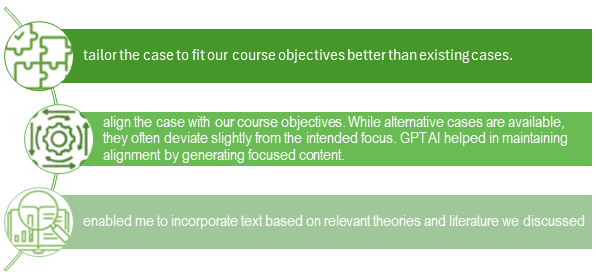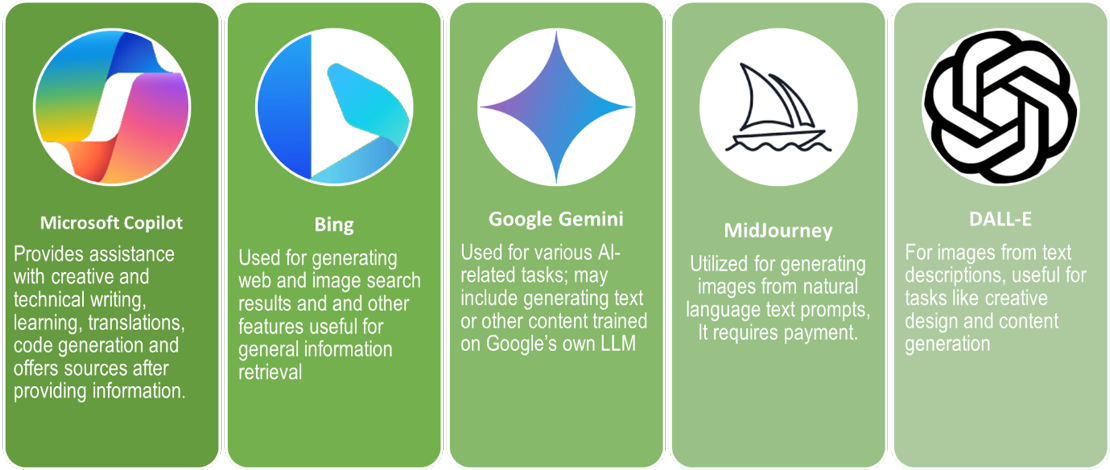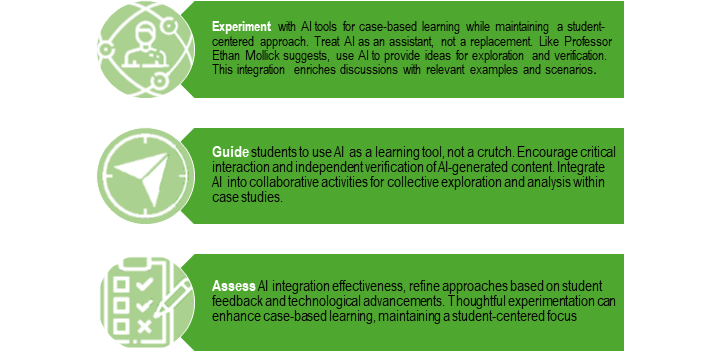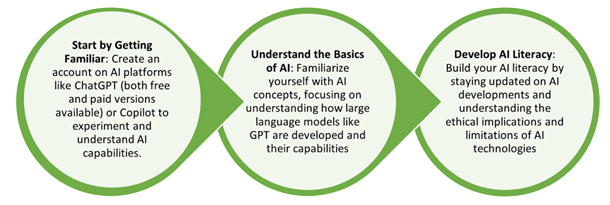In this interview, Maarten will offer his expert insights on the utilization of AI within the sphere of Higher Education, shedding light on its transformative potential and the implications it holds for academia at large.
Question 1: Could you reflect on your implementation of case-based learning using AI in the course "Change Processes and Management of Innovation in Healthcare," particularly focusing on "The Alexander Hospital Case"? Have you evaluated its effectiveness, and to what extent have you adapted it to enhance student learning outcomes and engagement?
One of the things that I indeed did for Education using GPT, was to write a case for students in health sciences about a hospital - this fictional hospital, the “Alexander Ziekenhuis or Hospital.” I believe case studies are effective for practical application of theoretical knowledge, but they're time-consuming to develop. Drawing from my own positive experiences as a student, I recognized the potential of using a chatbot to streamline case development.
This experiment proved successful and was integrated into the first-year Bachelor course in health sciences. Students were tasked with completing three assignments based on the case, applying their theoretical understanding in presentations.
To answer the question about reflection, I believe that the added value of using AI-generated cases became evident as students applied their knowledge to the case. Using AI helped:

Furthermore, students engaged in role-playing exercises, embodying stakeholders identified within the case. This added a practical dimension to their learning experience.
Question 2: Are there any specific AI technologies or tools that you find particularly promising for enhancing teaching and learning experiences in higher education?
I've been testing quite a lot of these generative AI tools. The list of these tools is endless.
AI Tools I've Tested:

In my experience, I've generated images related to the Alexander Hospital using AI. Integrating images with text makes content richer. Currently, I prefer GPT, especially the paid version, as it outperforms other tools I've tried. However, chatbots' frequent changes make obtaining reliable sources within text challenging, rendering them unsuitable for scientific research. Specific tools, like those for systematic literature reviews, are more appropriate for such purposes.
Question 3: How do you guide your students in utilizing AI tools for literature reviews and assignments? What advice do you offer them regarding the use of AI aids in their work?

I discourage students from relying on AI for literature reviews, emphasizing the importance of sourcing and referencing skills.
For example in my course, we've implemented a change in the course by reducing the weight of the final reports. Previously, it was around 80 or 90%, with presentations comprising only 10 or 20%. However, we've decided to increase the weight of presentations to ensure students adequately demonstrate their knowledge. My colleague and I conducted a study on how academics use AI, revealing similar concerns about its integration into teaching. There's ongoing debate on whether to train students in AI usage or leave it to their discretion. This underscores the need to effectively integrate AI knowledge and skills into the curriculum, a crucial aspect for university development.
Question 4: Recent headlines about artificial intelligence often portray a doomsday scenario e.g. “AI Is A ‘Real And Present’ Danger To Education”, speculating on AI's potential to destroy humanity and cause widespread job loss and dangers for education. How do you react to that ?
In discussing today's doomsday scenarios, I take a nuanced approach. While I don't foresee an immediate doomsday scenario, there are significant implications to consider. For instance, we must rethink how we assess students and acknowledge that the required knowledge and skills may undergo substantial changes. This parallels the emergence of the internet, which necessitated the acquisition of new skills for research and education. Similarly, this new fundamental technology will bring about important changes that we must adapt to.
Question 5: Have you encountered any resistance or skepticism from students or colleagues regarding the use of AI in educational settings, and how do you address those concerns?
Colleagues debate embracing or resisting AI in teaching, with concerns raised about its negative impact on education. Resistance persists, with questions about AI's integration and impact on teaching practices.
Question 6: Can you share any tips or best practices for effectively integrating AI into teaching practices for implementing case-based learning in your lectures and maintaining a student-centered approach?

Question 7: What kind of Education / knowledge do teachers need, in your opinion, for effectively integrating AI into their teaching practices and enhancing student learning experiences?
In my view, educators need a comprehensive understanding of AI literacy to effectively integrate AI into teaching practices and enhance student learning experiences. It is crucial for teachers to acquire knowledge on the ethical use of AI in educational settings but also have a critical understanding of what is maybe allowed but maybe not necessarily be conducive to positive learning outcomes.
Moreover, Prioritizing long-term implications, educators should consider how AI integration reshapes education and student competencies. While immediate experimentation is valuable, parallel consideration of the broader impact on education and the knowledge expected from students is essential to reshape educational practices and the skills and competencies students need to thrive in an AI-driven world.
Collaborating with experts like Kim Schildkamp, our project aims to foster AI literacy among educators, empowering them to navigate ethical complexities and enhance student learning.
Question 8: How do you foresee AI shaping the future of education from your perspective as a teacher?
From my perspective as a teacher, I see AI increasingly impacting education in teaching, research, and academic services. Identifying valuable AI tools and experimenting with them is crucial. AI can notably aid in reducing repetitive tasks like exam assessment, though caution is necessary due to potential biases. Balancing AI's capabilities with assessment accountability is vital for the future of education.
Question 9: To round off, what are your top three tips for new teachers using AI in Higher Education?







